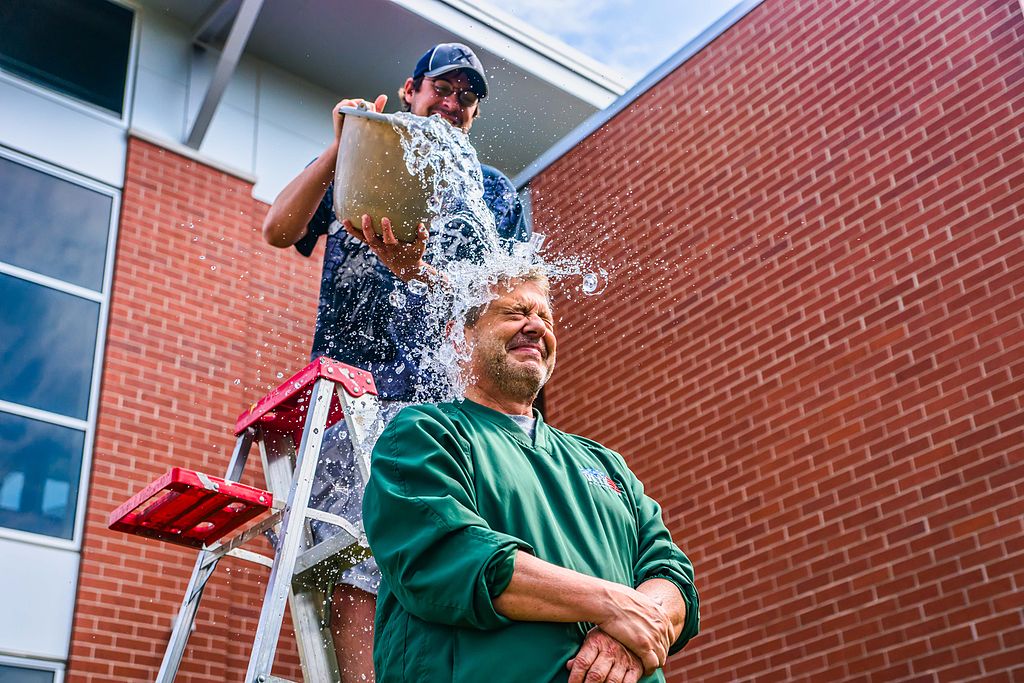
CINCINNATI, Ohio—A Roman Catholic diocese in Ohio is discouraging its 113 schools from participating in the ice bucket challenge to benefit the ALS Association, saying the group’s funding of embryonic stem cell research is “in direct conflict with Catholic teaching.”
Jim Rigg, superintendent of Catholic schools for the Archdiocese of Cincinnati, told the schools in a letter Tuesday to “immediately cease” any plans to raise funds for the association and to instead direct donations to another organization that combats ALS, a progressive neurodegenerative disease also known as Lou Gehrig’s disease that causes paralysis and almost certain death.
The Catholic Church relates the use of embryonic stem cells in research to abortion and says it violates the sanctity of human life. The use of adult stem cells in research is not forbidden by Catholic teaching.
“We certainly appreciate the compassion that has caused people all over the country, certainly including many Catholics, to be interacting and engaging in a fun way to support ALS research,” diocese spokesman Dan Adriacco said Thursday. “But it’s a well-established moral principle that not only the ends be good, but the means must be good, too.”
Carrie Munk, a spokeswoman for the ALS Association, said her group largely funds adult stem cell research but does fund one study involving embryonic stem cells using money from one specific donor.
She said all donors to the ALS Association can stipulate where their money goes and can ask that it not pay for embryonic stem cell research. Munk said she hasn’t heard of other Catholic dioceses recommending against donating to the group.
The diocese said schools could participate in the ice bucket challenge, but any money raised should be directed to groups like the John Paul II Medical Research Institute in Iowa City, Iowa, which conducts “pro-life driven” research, according to its website.
Don Clemmer, a spokesman for the U.S. Conference of Catholic Bishops, said that the group views the Cincinnati diocese’s actions as “a local matter” and that his organization has not issued any directives to its bishops discouraging donations to the ALS Association.
Rigg, the superintendent of schools for the diocese, and a principal at one of the schools took the ice bucket challenge in front of bleachers of students Thursday, and both men are contributing to the John Paul II Medical Research Institute, Adriacco said.
He said two high schools also took the challenge Thursday and a third is planning one, and any money raised will go to the institute in Iowa.
The tens of thousands of people who have taken the ice bucket challenge douse themselves with freezing water and post videos of the stunt on social media sites to raise awareness for ALS. The challenge has gone viral and participants have included professional athletes, celebrities and politicians.
Since the phenomenon took over the Internet, the ALS Association received $41.8 million in donations from July 29 through Thursday. That’s compared to $2.1 million in the same time period last year.
Munk said the association is amazed by the wave of donations.
“I guess the most remarkable thing about this ice bucket challenge is the level of visibility it has brought to this disease,” she said. “The dollars are incredible, but people are talking about ALS now, they’re talking about research, they’re talking about patients and their families. It’s really so incredibly valuable.”